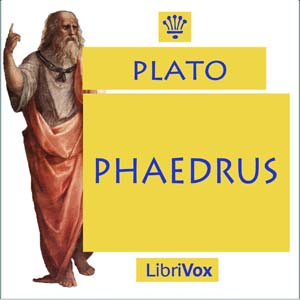Phaedrus
“For there is no light of justice or temperance, or any of the higher ideas which are precious to souls, in the earthly copies of them: they are seen through a glass, dimly…”
Socrates and his earnest friend Phaedrus, enjoying the Athenian equivalent of a lunchtime stroll in the park, exchange views on love and on the power of words, spoken and written.
Phaedrus is the most enchanting of Plato’s Erotic dialogues (capitalised in honour of the god). The barefoot philosopher urges an eager young acquaintance – who has allowed his lover’s oratorical skills to impress him overmuch – to re-examine the text of Lysias’s speech in the light of his own exalted (and Platonic) vision of Love.
Not long ago this early example of literary dismantling was itself deconstructed by a contemporary sage - Jacques Derrida.
The present reader tries to present Socrates as he conceivably was: the chortling, pot-bellied ex-soldier, a flirtatious yet charismatic talker with a serious passion for Truth. (Introduction by Martin Geeson)
Genre(s): Classics (Greek & Latin Antiquity), Ancient
Language: English
Keyword(s): literature (1955), philosophy (953), classics (65), Ancient Greece (21), reincarnation (15), platonic love (2), jowett (1), dualism (1), Greek homosexuality (1)
